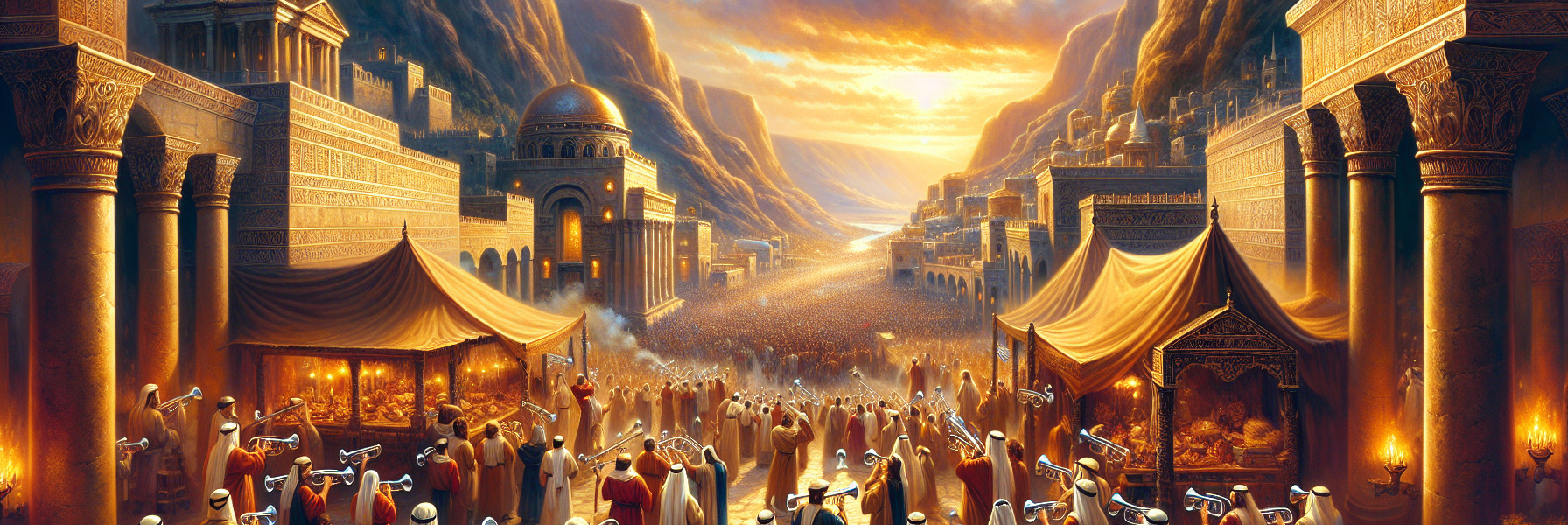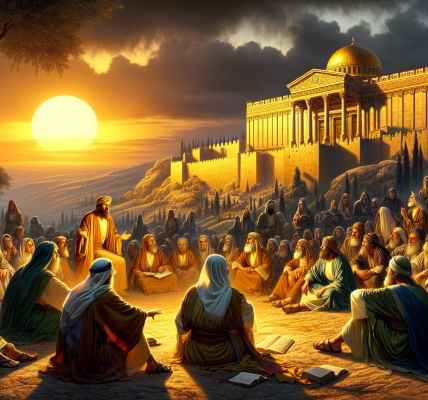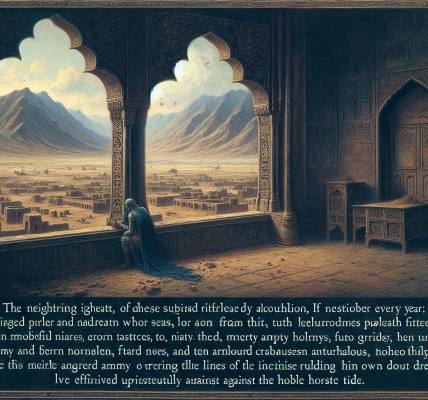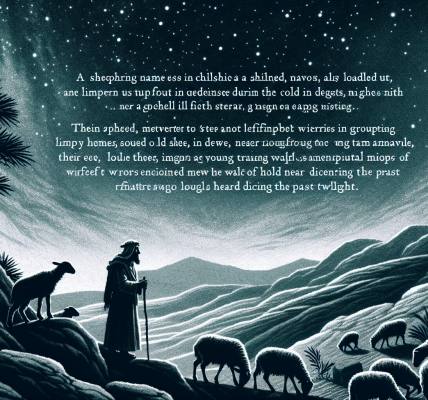**The Feast of Trumpets: A Call to Remember**
The golden light of the setting sun stretched across the hills of Israel, casting long shadows over the bustling streets of Jerusalem. The air was thick with the scent of roasting lamb, fresh bread, and the sweet tang of pomegranates. It was the first day of the seventh month—the Feast of Trumpets—a sacred time appointed by the Lord for His people to gather, rejoice, and remember His mighty deeds.
In the heart of the city, the Temple stood resplendent, its white stones gleaming in the fading light. The priests moved with solemn reverence, preparing for the evening sacrifice. Among them was Asaph, a Levite whose voice was known throughout the land for his psalms of praise and lament. As he stood in the courtyard, the silver trumpets were lifted high, their polished surfaces catching the last rays of the sun.
Then, with a deep breath, the priests sounded the trumpets—a long, clear blast that echoed through the valleys and hills, calling all Israel to worship. The people paused in their feasting, their laughter fading into a hushed awe as the sound filled the air. It was a sound of remembrance, a sound of warning, a sound of invitation.
As the echoes faded, Asaph lifted his voice, singing the words the Lord had placed upon his heart:
*”Sing aloud to God our strength;*
*Shout for joy to the God of Jacob!”*
The crowd stirred, their voices rising in response. Some clapped their hands, others lifted their faces toward heaven, their hearts stirred by the familiar words of the psalm.
*”Raise a song; sound the tambourine,*
*The sweet lyre with the harp.”*
Children danced between the families, their small drums beating in rhythm. Old men nodded, their lips moving in silent prayer as they remembered the days of their youth, when God had delivered them from bondage.
Then Asaph’s voice grew weightier, his tone shifting from celebration to solemn proclamation:
*”Hear, O my people, while I admonish you!*
*O Israel, if you would but listen to me!”*
A stillness settled over the assembly. Even the priests at the altar paused, their hands hovering over the sacrifices. The words were not merely Asaph’s—they were the very words of the Lord, spoken through His servant.
*”There shall be no strange god among you;*
*You shall not bow down to a foreign god.”*
Asaph’s eyes burned with passion as he recounted the Lord’s faithfulness—how He had brought Israel out of Egypt, how He had fed them in the wilderness, how He had tested them at Meribah. Yet, despite His kindness, the people had turned away, stubbornly following their own desires.
*”But my people did not listen to my voice;*
*Israel would not submit to me.”*
A murmur spread through the crowd. Some bowed their heads in repentance, while others shifted uncomfortably, their consciences pricked by the truth.
Then, like a father yearning for his wayward children, the Lord’s voice through Asaph turned tender:
*”Oh, that my people would listen to me,*
*That Israel would walk in my ways!”*
The promise hung in the air like the scent of incense—sweet and full of hope. If only they would return, if only they would obey, the Lord would swiftly subdue their enemies and satisfy them with the finest of wheat, with honey from the rock.
As the last notes of the psalm faded, the people stood in silence, the weight of the Lord’s words settling upon them. The Feast of Trumpets was not merely a time of celebration—it was a call to remembrance, a call to repentance, a call to return to the God who had loved them first.
And as the stars began to pierce the darkening sky, the trumpets sounded once more—a final, clear note, a reminder that the Lord was waiting, ready to pour out His blessings upon those who would hear His voice and follow Him.



